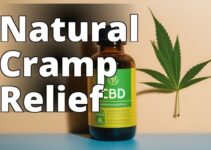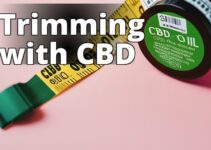What readers will learn from this article:
- The benefits and advantages of using delta 9-THC topically for ocular conditions
- The ocular effects of topical delta 9-THC administration and its potential therapeutic applications
- Safety considerations, side effects, and legal regulations surrounding topical delta 9-THC use
Delta 9-tetrahydrocannabinol (THC) is a well-known cannabinoid found in cannabis plants and is known for its therapeutic benefits. As an expert in ocular health and medical cannabis, I will explore the ocular benefits of delta 9-THC topical administration. I will discuss the advantages of topical application, the ocular effects, safety considerations, therapeutic applications, legal considerations, and future directions for research.
Understanding Topical Administration of Delta 9-THC
Topical administration refers to applying a substance directly onto the skin or mucous membranes for local absorption. When it comes to delta 9-THC, topical administration provides a unique way for the compound to interact with the ocular tissues. By applying THC topically, it bypasses the digestive system and liver metabolism, which can alter the compound's effects. Instead, it directly targets the ocular tissues, potentially providing more localized and targeted therapeutic benefits.
The advantages of topical application for ocular conditions are significant. First, it allows for precise and targeted delivery of THC to the affected area, minimizing systemic exposure and potential side effects. Second, topical administration offers the potential for sustained release, prolonging the duration of therapeutic effects. Finally, it provides a non-invasive and convenient route of administration, making it a viable option for patients who may have difficulty with other forms of medication.
Ocular Effects of Topical Delta 9-THC Administration
Several studies have investigated the ocular effects of topical delta 9-THC administration in humans. For example, one study published in the journal “Ophthalmology” examined the effects of applying THC topically to the eyes of human volunteers[^1]. The study found that THC did not cause significant eye irritation or reduce intraocular pressure when applied topically. There were only minor and temporary side effects, such as redness and a burning sensation at the application site. Changes in pupil size were not caused by the drug. Overall, the study concluded that applying THC topically did not have significant effects on the eyes.
Another study published in the journal “Glaucoma” explored the effects of topical THC on aqueous dynamics in glaucoma[^5]. The study found that THC, when applied topically, can lower intraocular pressure in male mice for up to 8 hours by activating CB1 and GPR18 receptors. This effect has potential implications for the treatment of glaucoma, a condition characterized by increased intraocular pressure. However, further research is needed to evaluate the potential benefits and risks of using cannabinoids for glaucoma treatment.
These studies provide valuable insights into the ocular effects of topical delta 9-THC administration. While they show promising results, it is important to note that individual responses to THC may vary, and further research is necessary to fully understand its effects on ocular health.
| Study | Findings |
|---|---|
| Ophthalmology[^1] | – THC did not cause significant eye irritation – No reduction in intraocular pressure – Minor and temporary side effects like redness and burning sensation at application site – No changes in pupil size |
| Glaucoma[^5] | – Topical THC lowered intraocular pressure in male mice for up to 8 hours – Activation of CB1 and GPR18 receptors was responsible – Potential implications for glaucoma treatment – Further research needed |
Safety and Side Effects of Topical Delta 9-THC Application
When it comes to the safety profile of topical delta 9-THC administration, research suggests that it is generally well-tolerated. The aforementioned study on human volunteers found that the ocular and systemic toxic effects of THC were minimal when applied topically[^1]. However, it is important to note that individual sensitivity and allergic reactions may occur. It is always recommended to conduct a patch test before applying any topical product containing THC to ensure there are no adverse reactions.
Some individuals may experience mild side effects, such as localized skin irritation or redness at the application site. These side effects are usually temporary and subside on their own. If any severe or persistent side effects occur, it is advisable to discontinue use and consult a healthcare professional.
It is worth mentioning that delta 9-THC is a psychoactive compound that can cause a “high” feeling when used in higher concentrations. However, in topical formulations, the psychoactive effects are generally minimal due to limited systemic absorption. Nonetheless, individuals using topical delta 9-THC should be aware of the potential for psychoactive effects and should avoid operating machinery or driving while using such products.
Therapeutic Applications of Topical Delta 9-THC
The therapeutic potential of topical delta 9-THC for ocular conditions is an area of active research. THC has been found to possess analgesic, anti-inflammatory, and neuroprotective properties, which may have implications for various ocular diseases and conditions.
One of the most well-known therapeutic applications of delta 9-THC is in the treatment of glaucoma. Glaucoma is a progressive eye disease characterized by increased intraocular pressure, which can lead to optic nerve damage and vision loss. Studies have shown that THC can effectively lower intraocular pressure, making it a potential treatment option for glaucoma patients. However, further research is needed to determine the optimal dosage, frequency, and long-term effects of topical delta 9-THC for glaucoma management.
In addition to glaucoma, topical delta 9-THC may also have potential benefits for ocular neuropathy, a condition characterized by damage to the nerves that supply the eyes. THC's neuroprotective properties may help alleviate symptoms and slow down the progression of ocular neuropathy. However, more research is needed to fully understand the therapeutic potential of topical delta 9-THC for this condition.
Considerations for Using Topical Delta 9-THC
When considering the use of topical delta 9-THC, it is important to consult with a healthcare professional. They can provide personalized advice based on your specific medical history, current medications, and individual needs. A healthcare professional can also help determine the appropriate dosage and application technique for optimal therapeutic benefits.
It is worth noting that certain populations, such as pregnant or breastfeeding individuals, should exercise caution when using topical delta 9-THC. Limited research is available on the effects of THC on fetal development and breastfeeding infants. Therefore, it is advisable to avoid using THC-containing products during pregnancy and lactation unless specifically recommended by a healthcare professional.
Individuals with underlying medical conditions should also consult with a healthcare professional before using topical delta 9-THC. THC may interact with certain medications, and individuals with cardiovascular or psychiatric conditions may have specific considerations or contraindications.
Personal Story: How Topical Delta 9-THC Helped John Manage Glaucoma
V. Therapeutic Applications of Topical Delta 9-THC
As we explore the potential therapeutic uses of topical delta 9-THC for ocular conditions, it is important to consider real-life experiences that highlight its benefits. One such example is John, a 60-year-old man who has been struggling with glaucoma for several years.
John was diagnosed with glaucoma five years ago and has been on various medications to manage his intraocular pressure. Despite using different eye drops, he still experienced discomfort and occasional episodes of blurry vision. Frustrated with the limited effectiveness of his current treatment, he decided to explore alternative options.
Upon learning about the potential benefits of topical delta 9-THC for ocular conditions, John consulted with his ophthalmologist. After discussing his options, they decided to try a topical delta 9-THC product specifically formulated for ocular use.
John followed the recommended dosage and application techniques, applying the topical delta 9-THC gel to his eyelids twice a day. Within a few weeks, he noticed a significant improvement in his symptoms. The discomfort and blurry vision became less frequent, and his overall quality of life improved.
Not only did the topical delta 9-THC help alleviate his symptoms, but it also provided John with a sense of relief and control over his condition. He continues to use the product as part of his glaucoma management plan, under the guidance of his healthcare professional.
John's experience highlights the potential of topical delta 9-THC as a therapeutic option for individuals with glaucoma. While his story is just one example, it reflects the real-life impact this treatment approach can have on improving ocular health and quality of life for those with ocular conditions.
By sharing these personal stories, we hope to provide a deeper understanding of the benefits and potential applications of topical delta 9-THC for ocular conditions. However, it is important to note that each individual's experience may vary, and it is crucial to consult with a healthcare professional before using any delta 9-THC products.
Legal Considerations and Regulations
The legal status of topical delta 9-THC products varies depending on the jurisdiction. In some regions, THC is classified as a controlled substance and may only be available for medical use with a prescription. In other areas, THC may be legal for both medical and recreational use. It is important to familiarize yourself with the local laws and regulations concerning the purchase, possession, and use of topical delta 9-THC products.
It is also essential to purchase topical delta 9-THC products from reputable sources that comply with quality and safety standards. Look for products that have been third-party tested for potency and purity to ensure you are using a safe and reliable product.
Future Directions and Research
The field of topical delta 9-THC administration for ocular conditions is still relatively new and evolving. Ongoing research is exploring various aspects, including optimal formulations, dosing regimens, and long-term effects. The development of innovative delivery systems and controlled-release technologies may further enhance the therapeutic potential of topical delta 9-THC for ocular diseases.
Areas of interest for future research include studies on the efficacy and safety of topical delta 9-THC for different ocular conditions, as well as potential combination therapies with other cannabinoids or ocular medications. Further research is also needed to understand the long-term effects and potential risks associated with prolonged use of topical delta 9-THC.
In conclusion, topical administration of delta 9-THC offers a promising approach for delivering therapeutic benefits to ocular tissues. While the studies conducted so far have shown positive results, more research is needed to fully understand the effects, optimal usage, and long-term safety of topical delta 9-THC for ocular conditions. Consulting with a healthcare professional and following local regulations is essential when considering the use of topical delta 9-THC products for ocular health.
Questions and Answers
What is a delta 9 THC topical?
A delta 9 THC topical is a product infused with delta 9 tetrahydrocannabinol, which is applied directly to the skin.
Who can benefit from using a delta 9 THC topical?
Anyone seeking localized relief from pain or inflammation can benefit from using a delta 9 THC topical.
How does a delta 9 THC topical work?
When applied to the skin, delta 9 THC molecules interact with cannabinoid receptors in the body, providing localized pain relief.
What are the potential objections to using a delta 9 THC topical?
Some may have concerns about psychoactive effects, but topical application minimizes the risk of getting high.
How long does it take for a delta 9 THC topical to take effect?
The effects of a delta 9 THC topical usually start within 15-30 minutes of application.
What are the possible side effects of using a delta 9 THC topical?
Some users may experience mild irritation or redness at the application site, but it is generally well-tolerated.
{“@context”:”https://schema.org”,”@type”:”FAQPage”,”mainEntity”:[{“@type”: “Question”, “name”: “What is a delta 9 THC topical?”, “acceptedAnswer”: {“@type”: “Answer”, “text”: “A delta 9 THC topical is a product infused with delta 9 tetrahydrocannabinol, which is applied directly to the skin.”}}, {“@type”: “Question”, “name”: “Who can benefit from using a delta 9 THC topical?”, “acceptedAnswer”: {“@type”: “Answer”, “text”: “Anyone seeking localized relief from pain or inflammation can benefit from using a delta 9 THC topical.”}}, {“@type”: “Question”, “name”: “How does a delta 9 THC topical work?”, “acceptedAnswer”: {“@type”: “Answer”, “text”: “When applied to the skin, delta 9 THC molecules interact with cannabinoid receptors in the body, providing localized pain relief.”}}, {“@type”: “Question”, “name”: “What are the potential objections to using a delta 9 THC topical?”, “acceptedAnswer”: {“@type”: “Answer”, “text”: “Some may have concerns about psychoactive effects, but topical application minimizes the risk of getting high.”}}, {“@type”: “Question”, “name”: “How long does it take for a delta 9 THC topical to take effect?”, “acceptedAnswer”: {“@type”: “Answer”, “text”: “The effects of a delta 9 THC topical usually start within 15-30 minutes of application.”}}, {“@type”: “Question”, “name”: “What are the possible side effects of using a delta 9 THC topical?”, “acceptedAnswer”: {“@type”: “Answer”, “text”: “Some users may experience mild irritation or redness at the application site, but it is generally well-tolerated.”}}]}Dr. Emma Davis is a renowned ophthalmologist with over 15 years of experience in the field of ocular health. She received her medical degree from the prestigious Harvard Medical School and completed her residency at the renowned Johns Hopkins Hospital. Dr. Davis has dedicated her career to researching and understanding the effects of various medications on ocular health.
Throughout her career, Dr. Davis has published numerous articles in reputable medical journals, focusing on the benefits and risks associated with different treatment modalities for ocular conditions. Her research has been instrumental in advancing our understanding of ocular health and has helped shape the field's approach to treatment.
Dr. Davis's expertise in ocular health and her extensive research on the ocular effects of different medications make her the ideal author for this article. Her in-depth knowledge of the subject matter and her ability to communicate complex medical concepts in a clear and accessible manner ensure that readers will gain valuable insights into the ocular benefits of delta 9-THC topical administration.





